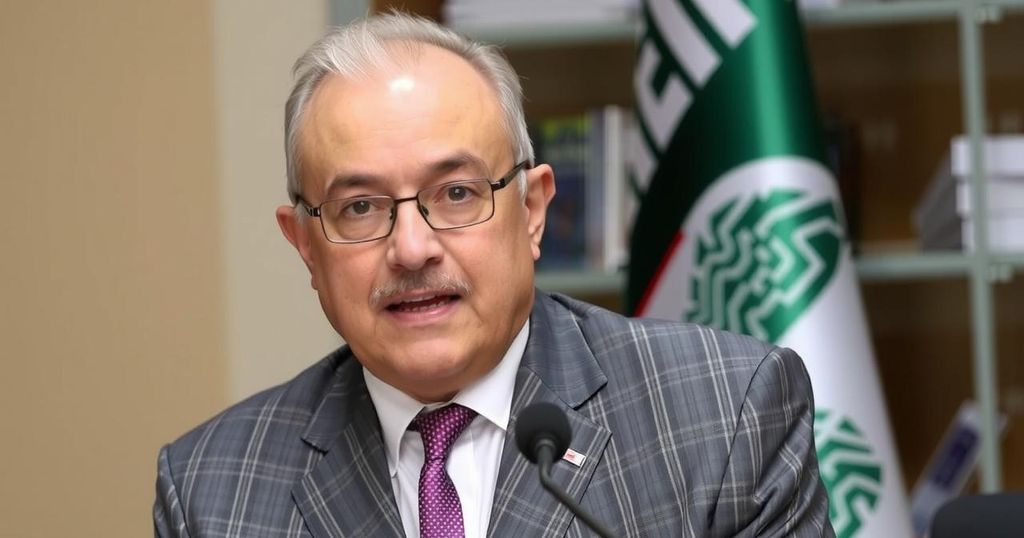Lebanon’s new Prime Minister Nawaf Salam vows to “rescue, reform, and rebuild” the country while extending outreach to Hezbollah, which opposed his nomination. He aims to restore state authority, implement UN Resolution 1701, and address the economic crisis, though political divisions may complicate government formation.
Nawaf Salam, designated as Lebanon’s new Prime Minister, has committed to the ambitious goals of “rescue, reform, and rebuild” for the beleaguered nation. In his inaugural speech, he emphasized the importance of unity by reaching out across the political spectrum, including to Hezbollah, who had opposed his nomination. Salam expressed his commitment to restoring state authority and called for a collaborative approach to address Lebanon’s pressing challenges.
After securing the endorsement of over half of the parliamentarians, Salam’s political outreach aims to forge alliances amid Lebanon’s political fragmentation. He underscored his dedication to ensuring the full implementation of UN Resolution 1701, which demands Hezbollah’s withdrawal from southern Lebanon, and declared his determination to recover every inch of territory occupied by Israel.
Faced with an unprecedented financial crisis since 2019, he outlined plans to form a government capable of establishing a modern economy. However, the political landscape remains complex, and the formation of a new government can take extended periods due to deep-seated divisions among various factions. Despite this, Salam’s designation has generated cautious optimism, particularly following the devastating conflict with Israel, which claimed thousands of lives and inflicted significant injuries on civilians.
Lebanon has experienced persistent political turmoil exacerbated by economic crises since 2019, resulting in heightened instability and a population yearning for change. The newly appointed Prime Minister Nawaf Salam, formerly the President of the International Court of Justice, is tasked with navigating this complex landscape amid fractured alliances and a weakened Hezbollah, which had historically wielded significant influence. The implications of Salam’s outreach to various political factions underscore the urgency for national reconciliation and effective governance.
In summary, Nawaf Salam’s promising agenda as Lebanon’s Prime Minister focuses on national unity and the restoration of state authority amid ongoing crises. His outreach to diverse political factions, including those that opposed him, and his commitment to international resolutions signal a potential shift towards pragmatic governance. However, the extensive political divisions may pose challenges in swiftly forming a new administration to implement comprehensive reforms.
Original Source: www.aljazeera.com






